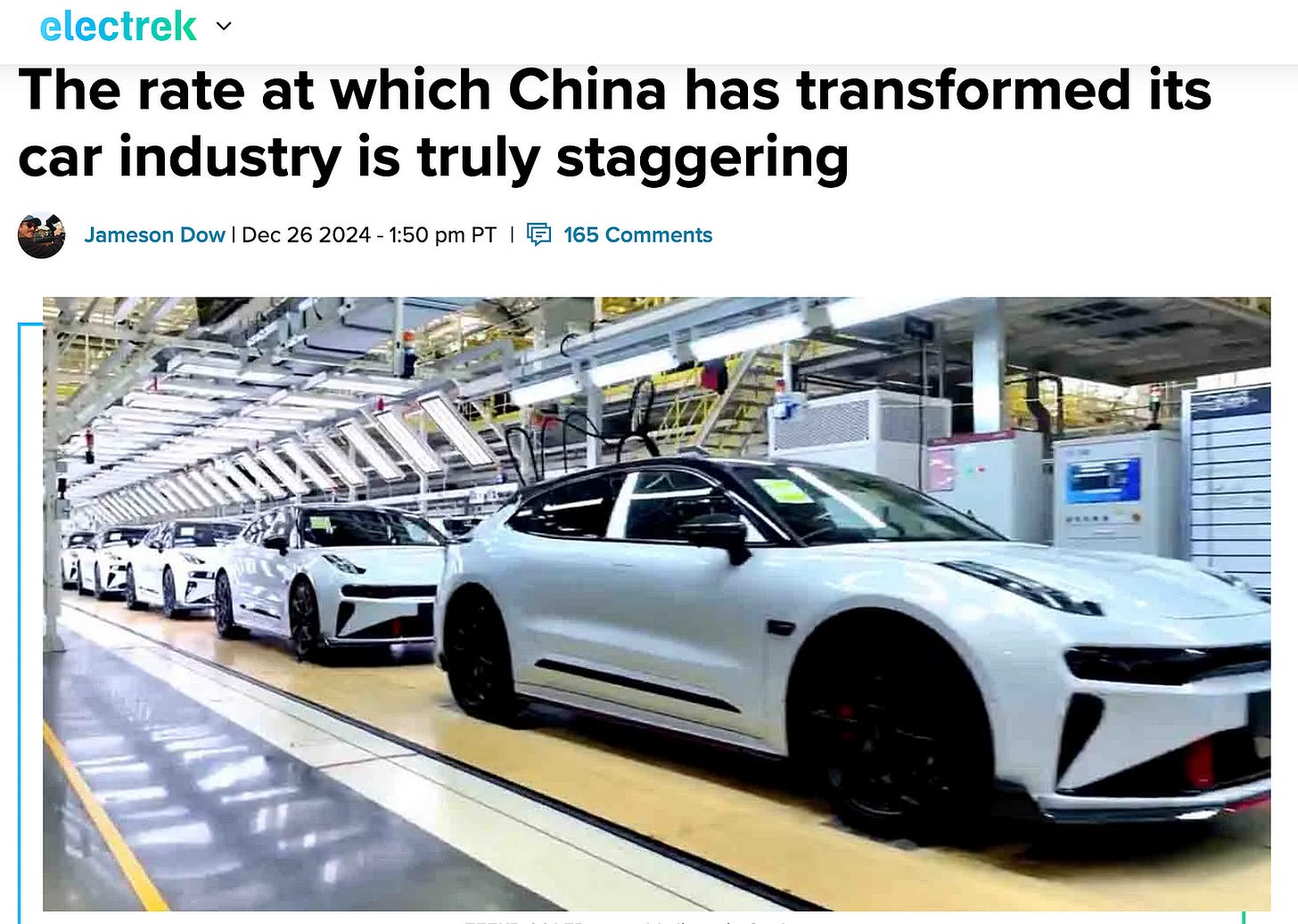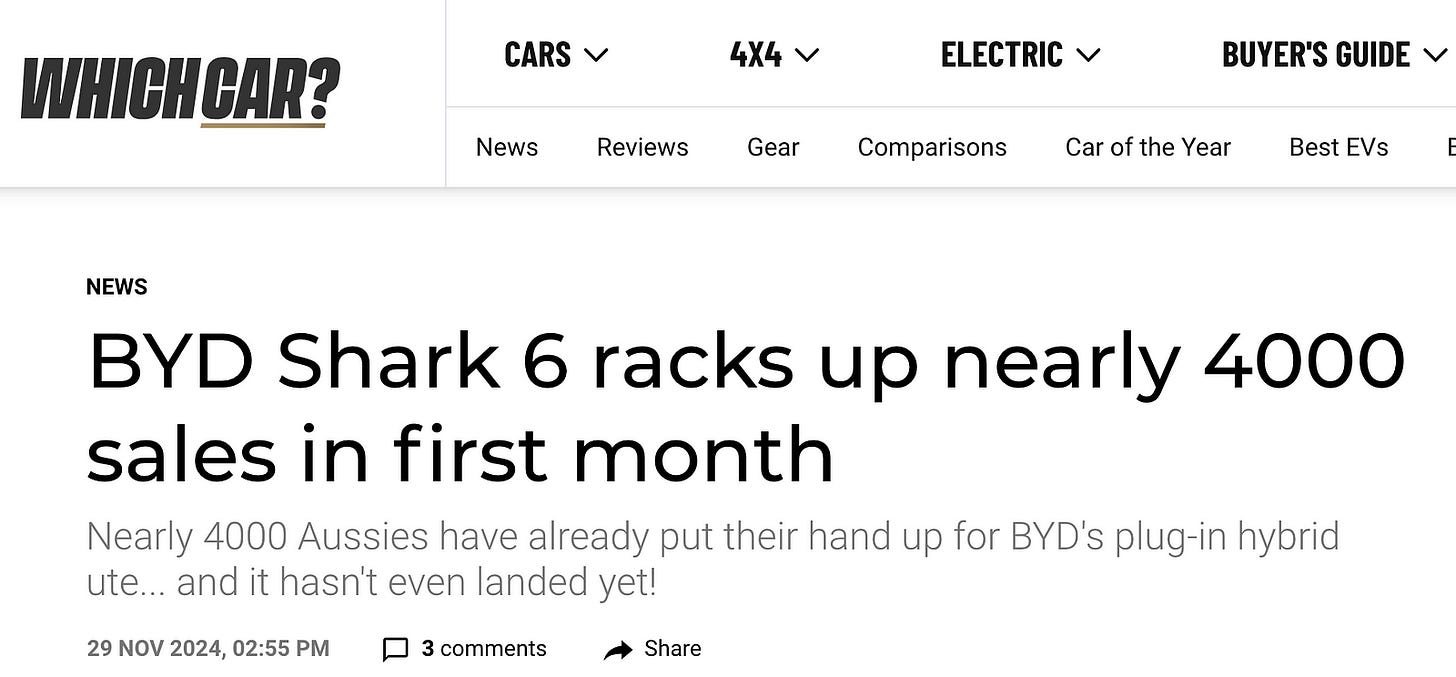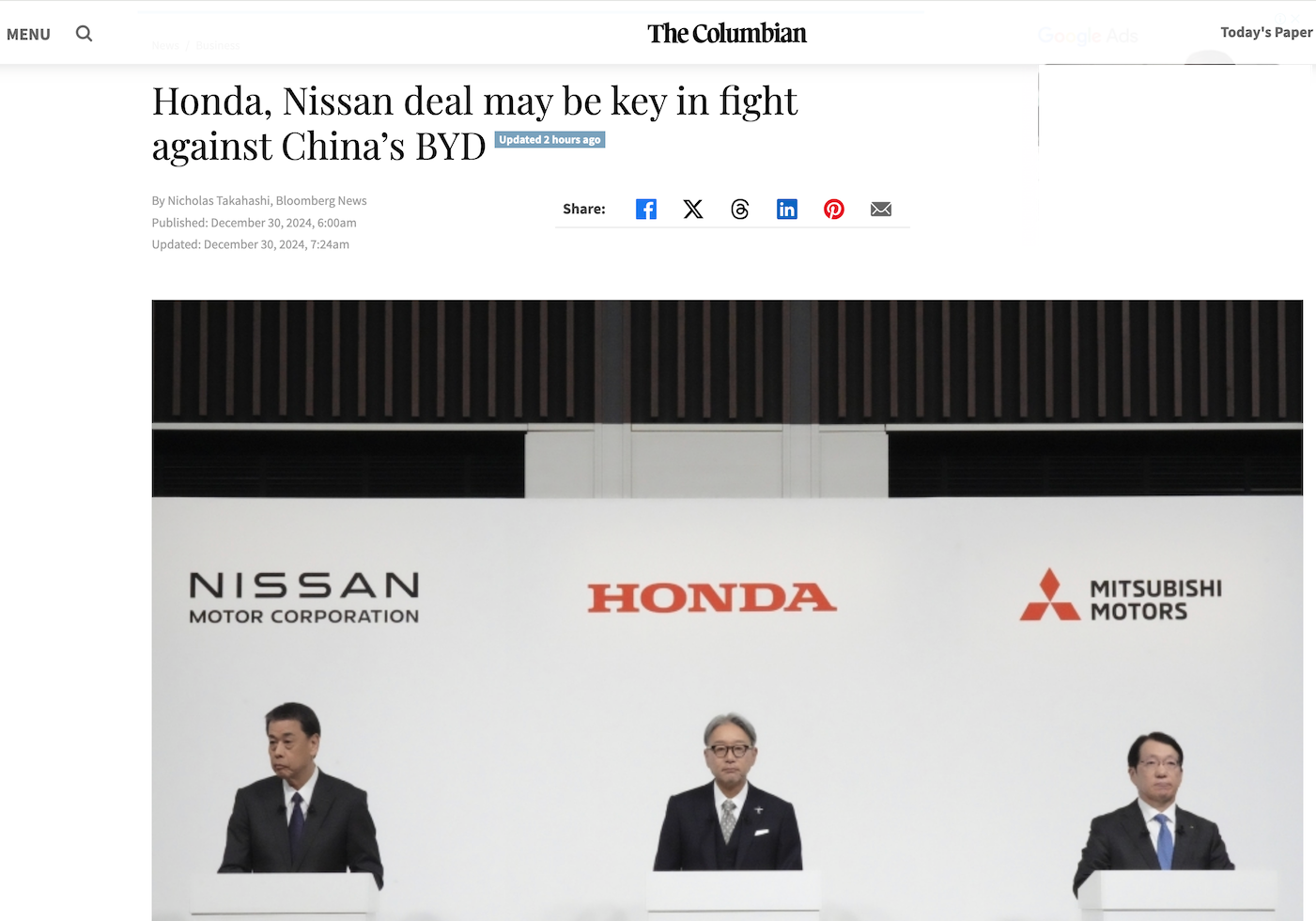Reflections on China's Transformation of the Car Industry, Part A: The Disruptions
Western car manufacturers are unprepared and seem to be passively watching it unfold.

Agile software development, rooted in Lean car manufacturing principles, emerged during a pivotal revolution in the 1980s. Now, we are witnessing another, much greater, transformation in the automotive industry—one that may offer valuable lessons. In this series:
Part A: The Disruptions
Part D: Traditional Car Manufacturers Reluctant to Evolve 👎🏾
Part F: Lacking on Plan B and C 👎🏾
Part G: Acknowledge Mistakes
“CNBC examines China’s rapidly growing automotive industry, focusing on its technological advancements, increasing exports, and a lack of interest in American car brands. … During Tesla's Q4 earnings call, Elon Musk warned that Chinese automakers could "demolish most other car companies in the world" unless regulators intervene”. - CNBC (YouTube)
In 2020, China set a 50% EV sales goal by 2035.

It was accomplished in 2024! During my two trips to China over the past two years, I observed a noticeable increase in the number of EVs on the roads.
EVs, pioneered by Tesla, provide a unique driving experience and significant cost savings. While nearly all traditional manufacturers now produce EVs, they remain expensive and still follow the outdated 6-year product cycle. Chinese EV manufacturers have changed the game: they embrace a “Release Often” strategy (just check BYD’s website to see multiple new models each year) at more affordable prices, without compromising on reasonable quality.
With the big change, the traditional car manufacturers were not well-prepared for this.
1. Price cuts by German luxury car manufacturers failed to achieve the desired impact.
BMW, Mercedes-Benz, and Audi have all attempted aggressive price cuts exclusively in China, but these strategies ultimately failed.
“The BMW i3 is a pure electric sedan, with an official starting price of CNY353,900 (USD48,725). But at present, most 4S stores in China are selling it at a 40 percent discount, so the actual price is around CNY200,000”
BMW and other luxury carmakers soon realized that aggressive price cuts were damaging their premium brand image, which ultimately affected their performance in other markets. For example, if the same car was priced at A$44,000 in China, how could they justify selling it for A$80,000 in Australia (and other countries)?
In response, BMW raised its prices again in mid-2024. Not surprisingly, sales in China plummeted, leaving them with no choice but to return to price cuts.
2. Job cutting and Merger
China’s EVs are not only disrupting luxury car manufacturers but also impacting the entire traditional automotive industry.
“Honda’s sales in China fell 28% in November versus the same month of 2023 while output slumped 38% year-on-year”.
“Nissan cuts 9000 jobs, delays new models” [source: Drive, 2024–11]
3. Get the governments to raise higher tariffs on Chinese EV cars
“In May 2024, the United States increased tariffs on Chinese-made EVs from 25% to 100%”
“In July this year, the European Union imposed a provisional anti-subsidy tariff of up to 37.6% on EVs imported from China”
[source]
I’m not particularly interested in politics (and I don’t like the Chinese government), but a tariff hike won’t save car manufacturers in Europe, Japan, and the USA.
The reasoning is straightforward: China itself is a massive market and is steadily increasing exports to other countries, which will inevitably affect all traditional car manufacturers. However, it does provide these manufacturers with a brief window of respite — a crucial, albeit short, opportunity to undergo significant transformation.
The above summarizes recent news. In the upcoming articles in this series, I will share my reflections on this topic and its connection to the software industry.
Some readers may wonder, “How are these two industries related?”
It mirrors, yet is more profound than, the shift in car manufacturing when Japanese automakers overtook the US in the 1980s. Toyota spearheaded this transformation by implementing “Lean Manufacturing,” a practice later adopted by all US manufacturers. The principles from The Toyota Way are now commonly taught in MBA courses.
Agile was also inspired by “The Toyota Way”. Check out the book, “Extreme Programming Explained: Embrace Change” by Kent Beck.
Related reading







